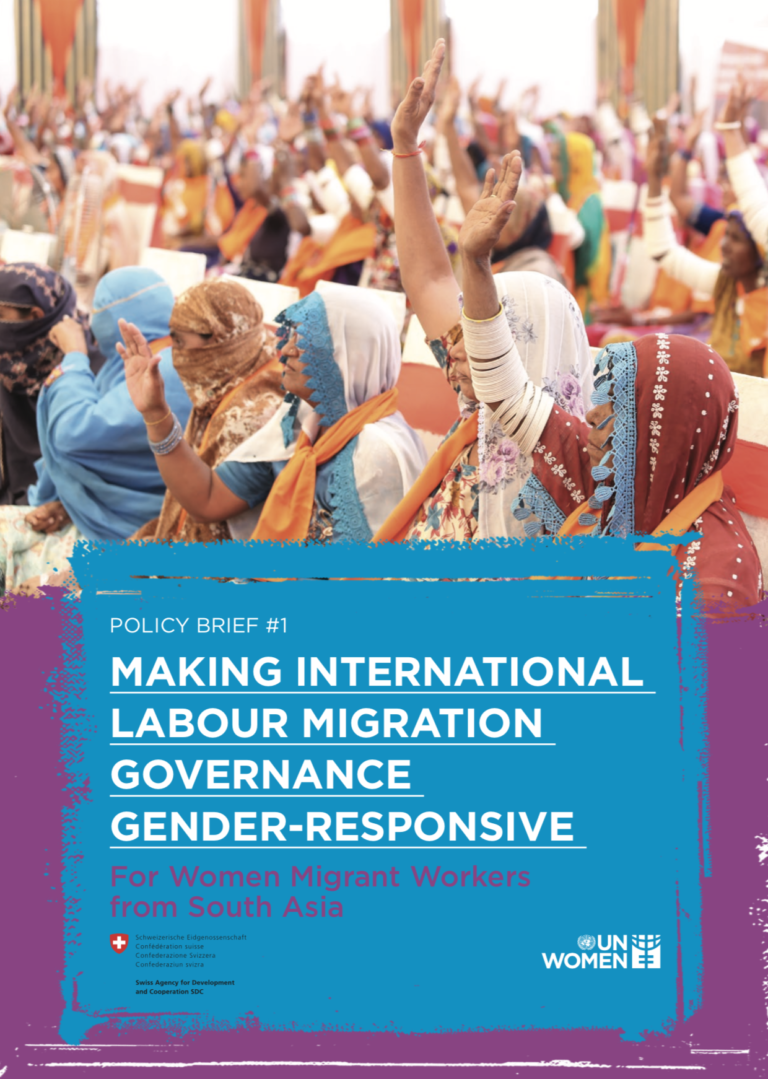“Making International Labour Migration Governance Gender Responsive” outlines the role of labour migration governance and policies in determining the living and working conditions of women migrant workers through employment contracts. It identifies specific entry points in the labour migration governance cycle where more gender-responsive approaches can be introduced.
This article is the first part of a three-part Policy Brief series that identifies actions to develop and implement effective, rights-based and gender responsive protections for women workers migrating from South Asia to the Middle East. The policy briefs address three key stages during which protections for women migrant workers are developed, implemented, and monitored.
This policy brief series forms one part of the “Empowering Women Migrant Workers from South Asia: Toolkit for Gender-responsive Employment and Recruitment” which supports gender-responsive policies and practices to protect and promote the rights of women migrant workers from South Asia.

